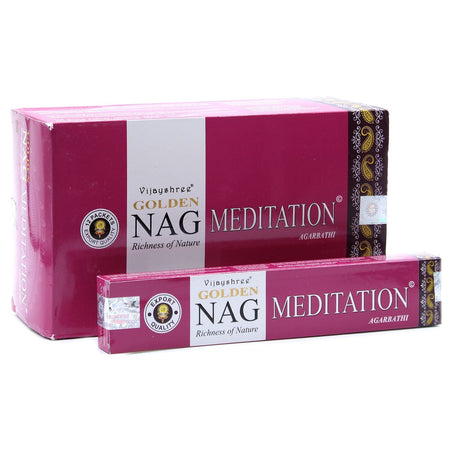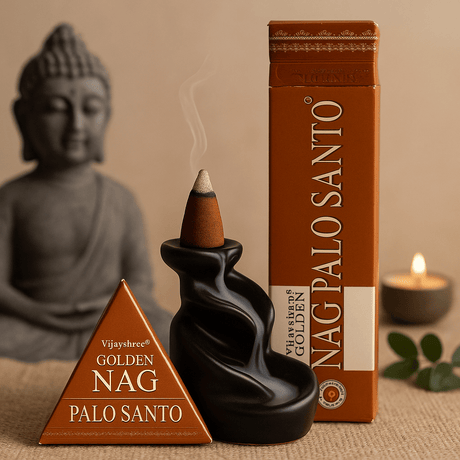Addiction can feel like a prison, a relentless grip that controls your thoughts and actions. Traditional approaches to recovery are invaluable, but many find that incorporating spiritual practices adds a powerful dimension to their healing journey. These practices can offer a sense of connection, purpose, and strength, empowering you to break free from the chains of addiction.
1. Mindfulness and Meditation
Meditation is a practice of quieting the mind and focusing your attention. It's a powerful tool for managing cravings and fostering self-awareness – crucial aspects of overcoming addiction. Through meditation, you learn to observe your thoughts and emotions without judgment, allowing you to recognize cravings as they arise without succumbing to them.
Mindfulness, a core component of meditation, involves paying attention to the present moment. Mindfulness exercises, like mindful breathing, can be integrated into your daily routine. Simply taking a few deep breaths and focusing on the sensations of your breath can help you regain control in moments of temptation.
Key Benefits of Meditation in Addiction Recovery
- Reflection and Awareness. Meditation provides a dedicated time for reflection, allowing individuals to contemplate their recovery progress and appreciate their journey. This practice fosters a greater awareness of personal achievements and the blessings in one’s life.
- Stress Hormone Regulation. Regular meditation significantly reduces stress by lowering the levels of stress hormones like cortisol, adrenaline, and norepinephrine. This reduction in stress enhances overall well-being and stability in recovery.
- Improved Sleep Quality. Practicing meditation, especially before bedtime, can quiet the mind and lead to better sleep quality. A restful night's sleep improves mood and cognitive function, making it easier to face the challenges of the next day.
- Deepened Spirituality. Meditation supports a holistic approach to recovery, nurturing the spiritual aspect of wellness. By connecting with their spiritual side, individuals find additional strength and purpose in their recovery journey.
Types of Meditation to Explore
- Traditional Meditation. This classic form of meditation involves quiet time alone, where the individual focuses on an object or phrase to minimize distractions and train the mind.
- Mindfulness Meditation. This type focuses on the present moment, training the mind to concentrate on current experiences and dismiss intrusive thoughts.
- Guided Imagery Meditation. Through soothing audio tracks, guided imagery meditation leads individuals through vivid, peaceful scenes, enhancing relaxation and mental escape.
- Yoga and Tai Chi. These action-based meditation practices combine physical poses with focused breathing and mindfulness, promoting a meditative state through movement.

2. Yoga
Yoga is a holistic practice that combines movement, breathwork, and meditation. Yoga can be incredibly beneficial for those in recovery, promoting detoxification, stress reduction, and emotional balance. Specific yoga poses can improve sleep, which is often disrupted during early recovery.
Experts have observed the transformative power of yoga for individuals struggling with addiction. The practice fosters self-discipline and a sense of embodied awareness, both crucial for overcoming addictive behaviors.
Core Benefits of Yoga for Addiction Recovery
- Enhancing Inner Strength and Resilience. Yoga helps individuals address feelings of emptiness or lack, which they might otherwise attempt to fill with substances. Through self-awareness and acceptance gained in regular practice, yoga encourages a connection with the inner self, fostering a sense of completeness and wholeness.
- Trauma Support. Many struggling with addiction have experienced trauma, impacting both mental and physical health. Yoga provides a safe space to explore difficult emotions and sensations, helping to regulate the nervous system and promoting a sense of groundedness.
- Emotional Regulation. By facilitating an environment to safely explore and process emotions, yoga builds emotional resilience and provides strategies for managing stress and negative emotions, crucial for those in recovery.
- Stress Reduction. Recognized for its stress-relieving qualities, yoga activates the parasympathetic nervous system, calming the body’s stress response, which is vital for reducing cravings and maintaining sobriety.
- Physical Health Improvement. Substance abuse can degrade physical health, and yoga addresses this by improving strength, flexibility, balance, and overall cardiovascular health. It also aids in managing chronic pain and boosting the immune system.
- Community and Social Support. The communal aspect of yoga classes can be incredibly beneficial, providing a network of support and shared experiences which are integral to the recovery process.
Yoga Practices Suitable for Addiction Recovery
Several forms of yoga can be particularly effective for those in recovery:
- Hatha Yoga. Focuses on physical postures and breathwork, ideal for beginners.
- Vinyasa Yoga. Involves a series of poses that flow smoothly into one another, helping to improve physical strength and flexibility.
- Restorative Yoga. Uses props to support the body, allowing deep relaxation and stress relief.
- Kundalini Yoga. Combines movements, dynamic breathing techniques, meditation, and the chanting of mantras, such as Sat Nam, to enhance self-awareness and inner strength.

3. Connecting to a Higher Power
Many spiritual traditions emphasize the importance of a Higher Power. This doesn't necessarily refer to a specific religion; it's the concept of a force greater than ourselves that provides strength, guidance, and purpose. Connecting to this Higher Power can be incredibly empowering in recovery. It fosters a sense of hope and reminds you that you're not alone in your struggle.
The Role of a Higher Power in the 12-Step Program
The concept of a higher power is integral to the 12-Step program, an evidence-based framework proven effective for treating substance use disorders (SUD) across the nation. While the program uses religious terminology, it is designed to be inclusive, allowing individuals from all spiritual or secular backgrounds to benefit. The steps encourage participants to:
- Recognize a power greater than themselves that can restore sanity.
- Decide to entrust their will and lives to the care of this higher power, as they understand it.
- Admit their faults to this higher power, themselves, and another person.
- Prepare to have their character defects addressed by this higher power.
- Humbly request the removal of these shortcomings.
- Seek to improve their conscious contact with the higher power through prayer and meditation, focusing on understanding and fulfilling the will of this power.
Identifying and connecting with a higher power is a process that unfolds over time, much like the recovery process itself. This spiritual exploration can significantly empower individuals, fostering a sense of hope and reassurance that they are not alone in their struggles. Through programs like the 12-Step model, and the supportive environment of treatment organizations, individuals are encouraged to delve into the spiritual aspects of their recovery, discovering what a higher power means to them and how it can sustain their journey towards healing and sobriety.

4. Nature Therapy
Nature therapy, also known as ecotherapy, involves engaging with the natural environment to promote mental and physical well-being. This practice can play a critical role in recovery by providing a peaceful escape from the stressors of daily life and fostering a deep connection with the world around us.
Integrating nature therapy into a recovery program doesn't require grand adventures; even simple activities can yield significant benefits:
- Nature Walks and Hiking. Regular walks or hikes in a natural setting can be a meditative and restorative practice, providing quiet time to reflect and connect with oneself.
- Gardening. Participating in gardening not only fosters a connection with the earth but also offers a sense of accomplishment and responsibility as one cares for living plants.
- Mindful Observation. Activities like bird watching or sitting by a body of water allow for peaceful contemplation and mindfulness, enhancing one's spiritual connection with nature.
- Outdoor Sports. Engaging in outdoor sports, such as cycling or kayaking, provides both physical exercise and the therapeutic benefits of being in a natural environment.

5. Prayer and Spiritual Reading
Prayer in recovery is more than a ritual; it is a transformative practice that enables individuals to communicate with their chosen Higher Power, whether it be a deity, the universe, nature, or a personal concept that holds significant meaning. This practice isn’t confined to any one religion but is accessible to anyone, regardless of their spiritual or religious beliefs.
Prayer can be a reflective practice that helps individuals articulate their desires for sobriety and well-being, replacing the desperate pleas of addiction with hopeful affirmations for a healthier future. Here are a few recovery-friendly prayers that can be adapted to any belief system:
- The Serenity Prayer. Widely recognized and used in 12-step programs, this prayer seeks serenity, courage, and wisdom in dealing with life's challenges.
God, grant me the serenity to accept the things I cannot change,
Courage to change the things I can,
And wisdom to know the difference.
- St. Francis of Assisi's Prayer. A call for peace and joy amidst life's trials.
Lord, make me an instrument of your peace;
Where there is hatred, let me sow love;
Where there is injury, pardon;
Where there is doubt, faith;
Where there is despair, hope;
Where there is darkness, light;
And where there is sadness, joy.
- Third Step Prayer. Focuses on self-surrender to a Higher Power’s will and gaining freedom from self-centric behaviors.
God, I offer myself to Thee — to build with me and to do with me as Thou wilt.
Relieve me of the bondage of self, that I may better do Thy will.
Take away my difficulties, that victory over them may bear witness to those I would help of Thy Power, Thy Love, and Thy Way of life.
May I do Thy will always!
Incorporating these practices not only offers comfort and direction but also enriches one's recovery experience, fostering a connection to a higher power that provides faith, hope, and courage. This connection can be profoundly life-changing, supporting individuals as they navigate both the challenges of rehab and the broader journey of recovery.

Conclusion 🍃
The journey to recovery is a marathon, not a sprint. These spiritual practices can be powerful tools to complement traditional treatment and empower you to break free from addiction.
Remember. You are not alone. With dedication, self-compassion, and the right support system, you can build a brighter future, free from the chains of addiction.
SHAMTAM offers a variety of resources that can complement your spiritual practices on your recovery journey. From calming crystals to soothing aromatherapy products, we can help create a peaceful and supportive environment for your healing.
































































































